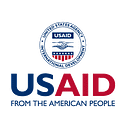Taking Steps to Spend Health Budgets Fully Can Help Countries Meet Health Goals
LHSS helps Peru Ministry of Health strengthen its budget execution
By Karishmah Bhuwanee and Arturo Javier Granados Mogrovejo
Returning funds to the Ministry of Finance at the end of the fiscal year is the last thing any Ministry of Health (MOH) wants to do. Ongoing health programs need the resources, and returning money makes it hard to negotiate for adequate health budgets the following year. Unspent budgets are one example of poor budget execution, the situation in which money assigned to the health sector is not spent as intended.
In Peru, budget underspending by the MOH has led to neglected hospital infrastructure and equipment and a lack of health workers at primary health care facilities. “At the end of the year, you pay back money and end up with debts,” said a budget manager for a large health services network in northeastern Peru.
From 2010–2022, on average more than $600 million allocated to the health sector in Peru was left unused each year. This means significant amounts of money intended for the health sector were left unused.
Why does this happen?
In 2022, the USAID Local Health System Sustainability Project (LHSS) collaborated with the ministry’s Office of Planning, Budget, and Modernization (OPBM) to figure out what was preventing health budgets from being spent. The assessment focused on the national and subnational managers responsible for executing government health budgets. It found that health-sector budget staff did not always know the country’s public financial management rules, which are set by the Ministry of Finance, or how they should be applied in the health sector. They also did not have a clear understanding of how good budget execution is key to achieving health targets.
The OPBM team responded in two ways: they created a health budget management guide to help subnational teams better understand the main rules and procedures for managing health budgets, and they developed a strategy to strengthen institutional capacities for health planning and budget execution at the national level and regional levels. The strategy, now being implemented by OPBM, has the following objectives:
- Strengthen the management and strategic vision of the health sector
- Better articulate the links between planning and budgeting and between health and financial management teams
- Strengthen the capacity of budget managers at the national and subnational levels
- Increase budget flexibility by granting greater freedom to budget managers, supported by accountability mechanisms to safeguard government funds
- Professionalize and better recognize staff who perform budget functions by making certification mandatory to exercise these responsibilities, and increase the number of health budgeting staff
OPBM General Director Iliich Ascarza said that to ensure health budgets are spent effectively, “confronting, and reversing, the disconnect between health priorities, planning and budgeting” will be a priority in 2023.
To move things forward, a motivated group of early-career and senior specialists at OPBM have formed a multidisciplinary community of practice in management of financing for universal health coverage. The community of practice will analyze financial management challenges and recommend corrective measures.
One challenge they will examine is that subnational budget managers must manage resources from multiple sources, each of which has its own financial management rules and procedures. Another is that inflexible public financial management rules and processes make it difficult for staff to reallocate or make changes in the way they spend if there is a health emergency.
These initiatives, led by OPBM and supported by LHSS, together with a concerted effort to collaborate with stakeholders such as the Ministry of Economy and Finance and the National School of Public Health, aim to help the MOH make full use of its budgets to implement its health plans and achieve its health targets. If all goes as planned, this will create a virtuous cycle, where the Ministry of Health spends its budgets effectively and the Ministry of Finance, in turn, is motivated to allocate the budget the MOH requires.
About the authors:
Karishmah Bhuwanee, MSc, is an economist and public financial management specialist on the LHSS Project.
Arturo Javier Granados Mogrovejo, a consultant to the LHSS Project, is a public policy and decentralization specialist.
